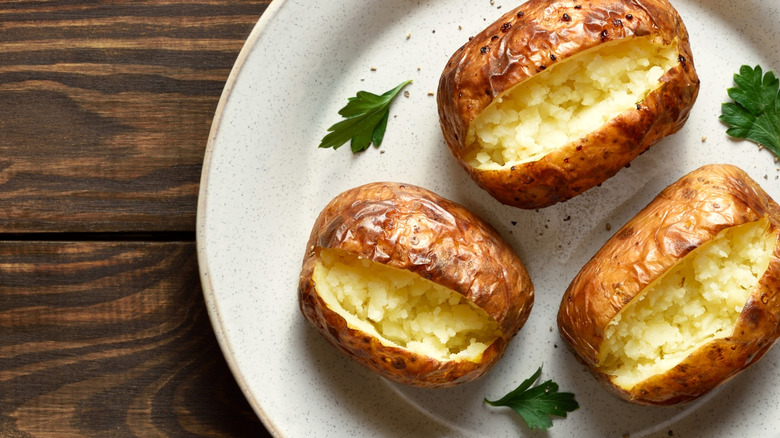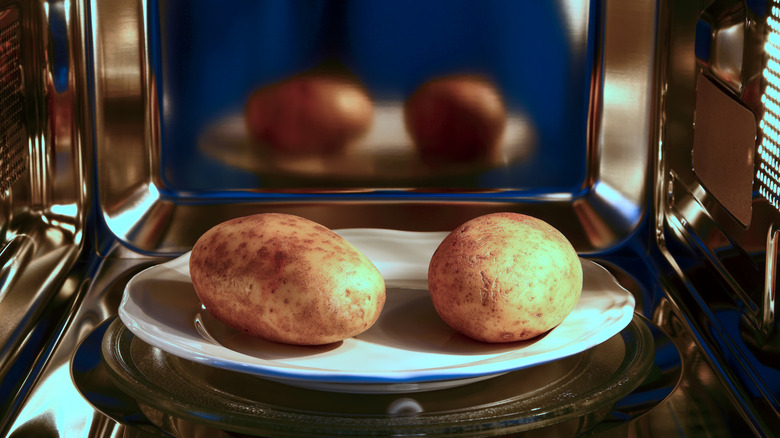Can And Should You Freeze Baked Potatoes?
The humble potato is the GOAT of vegetables, but it has one drawback: It can be a lot of work. Potato prep often involves scrubbing, boiling, and grating, and then there's the actual cooking stage. Baked potatoes can famously take over an hour in the oven, but there's a trick to revolutionize your meal prep game — just freeze 'em! While it will somewhat alter the spud, you absolutely can (and maybe even should) freeze them to reheat and enjoy later.
The primary change will be in the potato's texture. Potatoes contain a lot of moisture that, when baked, gets trapped within the skin (which is why people often poke holes in them before placing them in the oven). When they come out, they're soft and pillowy, but when you freeze them, all that liquid stays put, continually permeating the potato flesh. So, when you reheat them, you'll notice a drop in quality. Still, people can overhype the difference this makes. The flavor will remain intact, and the texture doesn't become slushy or unpleasant — it's just a little more mealy than before.
If you don't mind slightly moister baked potatoes, freezing them will be a game changer for meal prep, saving you time and effort. Plus, you don't have to eat them as-is. You can use pre-baked potatoes to make golden hash browns, soup, fried potatoes, fluffy mashed potatoes, and more.
Tips for freezing and reheating baked potatoes
You can freeze any type of potato, but there are differences to note. Russet potatoes are considered ideal for baked potatoes due to their low moisture and high starch content. This allows them to become smooth and fluffy, and they'll freeze well given their light, floury texture. Yukon Golds are the next best option, with a slightly higher moisture (and less starch) content. In a nutshell, the higher the starch content, the fluffier the baked potato will be. Still, some people prefer a firmer texture, so there's no right or wrong decision.
Before popping them in the freezer, wait until the potatoes have cooled. The warmer the potato, the more excess water will accumulate in the freezer, and while the spud's natural moisture won't affect the reheated texture too much, unnecessary condensation can. Also, make sure to seal them properly, either in a plastic bag or container. You can leave them in their foil wrap, but this alone won't be enough insulation for freezing, so an extra plastic layer is recommended.
To reheat, skip the thawing stage and go straight to the heat. Whether it's back in the oven, air fryer, microwave, or even on the stove, you'll be good to go. The microwave is the only option where you risk drying the potatoes out a little, but maybe that's not such a bad thing if you want to offset any water-logging from the freezer.


